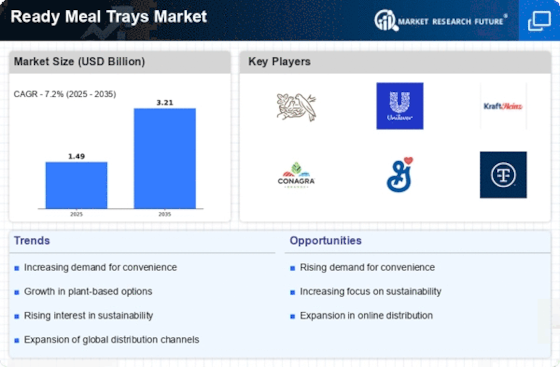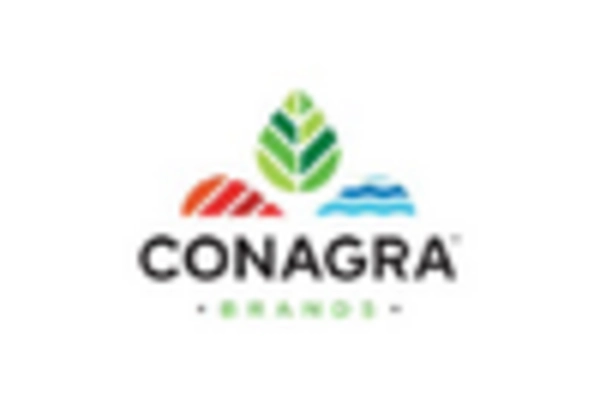Market Share
Ready Meal Trays Market Share Analysis
In the competitive landscape of the Ready Meal Trays market, companies employ various strategies to establish and strengthen their market share positioning. A crucial strategy is differentiation, where companies aim to distinguish their ready meal trays from competitors by offering unique features, designs, or functionalities. This might include innovations in tray design for improved aesthetics, compartmentalized trays for different food items, or materials that enhance microwave or oven compatibility. Through differentiation, companies attract consumers seeking specific attributes, enabling them to secure a distinctive market share within the Ready Meal Trays industry.
Cost leadership is another prevalent strategy in this market, where companies strive to become the low-cost providers of Ready Meal Trays. This involves optimizing manufacturing processes, achieving economies of scale, and efficiently managing the supply chain to offer competitive prices. Cost leadership is effective in appealing to price-conscious consumers and can lead to increased market penetration. However, maintaining the quality and safety of the trays is crucial to ensure customer satisfaction and loyalty in this cost-driven strategy.
Market segmentation is widely adopted in the Ready Meal Trays industry. Companies analyze the diverse needs of their customer base and create specialized trays tailored for specific market segments. For example, they might develop trays suitable for different types of cuisines, dietary preferences, or portion sizes. By addressing the unique requirements of each segment, companies can establish a robust presence within different markets, contributing to an overall enhanced market share.
Strategic partnerships and collaborations play a vital role in the Ready Meal Trays market. Companies often form alliances with food manufacturers, retailers, or packaging specialists to strengthen their supply chain, enhance product quality, and expand market reach. Collaborative efforts can lead to shared resources, access to new technologies, and entry into new geographic markets. Through strategic partnerships, companies can navigate industry challenges more effectively, ultimately contributing to a more secure market share position.
Innovation serves as a cornerstone strategy in the Ready Meal Trays market, driven by the continual pursuit of improved functionality, sustainability, and consumer convenience. Companies invest in research and development to introduce eco-friendly materials, enhance the design of trays for better stacking and storage, and create packaging solutions that extend the shelf life of ready meals. Innovations in tray technology, such as those enabling steam cooking, also cater to evolving consumer preferences and industry trends. By staying at the forefront of innovation, companies not only attract environmentally conscious consumers but also position themselves as leaders in the Ready Meal Trays market, securing a significant market share.
Customer-centric strategies are gaining prominence as companies recognize the importance of providing exceptional customer experiences. This involves offering efficient order processing, customization options for branding and labeling, and responsive customer support. Exceptional customer service contributes to satisfaction and loyalty, encouraging food producers and retailers to choose a particular supplier for their ready meal tray needs. By focusing on building strong relationships with customers, companies can solidify their market share and maintain a competitive edge in the Ready Meal Trays market.


















Leave a Comment